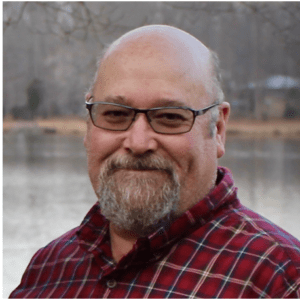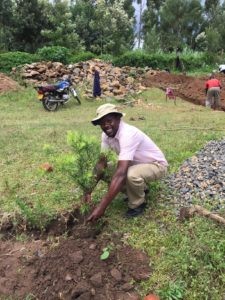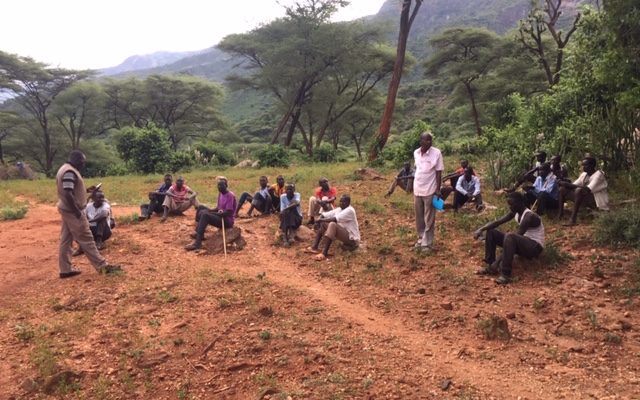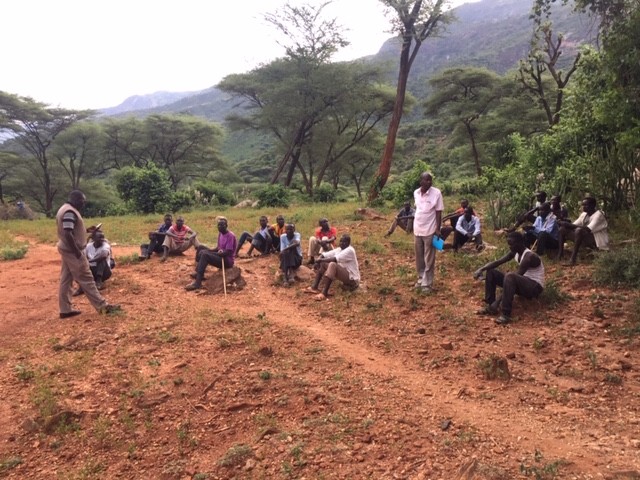COVID-19 and gigantic swarms of crop-devouring locusts are compounding the challenges of hunger, poverty and war that many Africans already face.
But there are communities where a reliance on faith and on internal economic capacity are helping people survive current and emerging threats alike, said Sam Harrell, associate coordinator for global missions for the Cooperative Baptist Fellowship.
“We are continuing to do what we have been doing, which is trying to build resilience to reduce vulnerability to inevitable catastrophes,” Harrell said about the Fellowship’s efforts in parts of Kenya, which is located on the east coast of Africa along the Indian Ocean.
Inspired by their compassion
CBF works in the country through a regional engagement partner called Africa Exchange, a nonprofit that works through local community centers to provide childhood development services, education, ecosystem conservation, technology development and economic self-sufficiency.

Sam Harrell
Harrell, who was born and raised in Kenya by Baptist missionary parents, said the self-sufficiency of these communities has grown enough that residents are weathering the pandemic and food scarcity without the typical outside guidance. “It’s clear these communities have developed the income generation to be more resilient when these disasters occur.”
Trees for Life, a new program hampered by the pandemic, is a tree-planting effort to contribute to that long-term sustainability.
The ability of self-reliant communities to overcome setbacks is inspiring to those who serve them, said Mark Okello, manager of Africa Exchange.
“They are working so hard in harsh conditions, walking long distances in search of food, education and treatment, and they can still smile,” Okello said via email from Kenya. “I am always inspired by their compassion and how rooted the communities are.”
But the dangers they face — present or potential — are daunting.
Food scarcity is the one most known, and the fear now is that a coming plague of locusts could lead to starvation.
A higher-than-usual number of cyclones in the Indian Ocean last year helped foster favorable breeding conditions for the locusts that are now ravaging nations around the Horn of Africa, including Somalia, Ethiopia, Sudan and South Sudan, Uganda and the northern reaches of Kenya, Harrell said. “It’s a confluence of events brought on by climate change.”
Northern Kenya is made up of arid grazing land for livestock. If the swarms move south, they will invade the nation’s farm country with devastating effects on food supplies, Harrell said. “The last time we have seen locusts to this extent was 70 years ago. They are reporting swarms over a trillion locusts at this point.”
Presently, it’s unknown if those swarms will move further in Kenya, because strong winds from the south may keep the locusts to the north. “We really don’t know what’s going to happen,” Harrell said.
God’s love is huge
The death toll from COVID-19 remains well below 200, he added, “but if the virus spreads here like it has elsewhere, they don’t have the medical infrastructure to handle it.”
The Kenyan economy also has struggled to handle the lockdown, said Okello. “People lost their jobs and businesses, and life came to a halt.”

Mark Okello
Okello’s movements in western Kenya have been severely curtailed, enabling him to visit only three of the 16 communities where feeding programs, the de-worming of children and development initiatives are provided. “We work with the most marginalized communities” that “have no access to water, education, health care or other basic needs.”
Yet communities have used green houses, water and gardening projects, beekeeping and goat-herding to feed themselves and earn income. They are driven to survive but do not credit themselves with the outcome.
“The communities we work with are faith-based,” Okello explained. “They always say God’s love is huge and that it has revealed itself through men and women of good will, missionaries and friends who travel many miles to come and uplift their standard of living.”
Even so, being unable to return to Kenya to work directly with those in need is difficult, Harrell said. “You feel like you’re abandoning your family to a certain extent.”
That pain is eased knowing the efforts of Africa Exchange are taking root. “You see the capacity people are building and that it’s paying off,” Harrell said. “And I can see no one needs me there to manage anything.”


